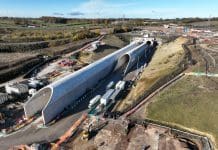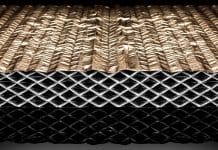The Skanska Costain STRABAG HS2 joint venture will trial the use of repurposed clay instead of cement
HS2’s joint venture will trial the use of repurposed clay in its construction.
The intent is for the clay to be a low-carbon alternative to cement, improving the sustainability of the project as a whole.
The joint venture is collaborating with academics and industrialists
The HS2 joint venture is working in collaboration with Arup, Tarmac, the University of Leeds, Sika UK, Expedition Engineering, and the Mineral Product Association.
The trial is being funded by Innovate UK as part of the process of decarbonising the concrete industry.
The London Clay will be extracted from HS2’s tunnel activities and activated through heat, allowing it to act as a replacement for Portland cement.
Innovate UK has invested £3.2m in decarbonising concrete
Apostolos Tsoumelekas, materials engineering manager, said: “This innovation was first sparked by discussion with an expert in Arup who had been researching the applications of calcined clays in concrete. Working together with our customer and the supply chain we have been able to help turn this idea into reality.
“The clay that is excavated from the HS2 tunnels is essentially a waste product. We have developed a process which calcines the clay and grinds it to a powder transforming it into a useful resource which can then be added to concrete replacing Portland cement. The results have been impressive and hopefully if it’s scaled up it could really help speed up the adoption of low-carbon concrete for commercial use.”
Dr. Stafford Lloyd, innovation lead, clean growth strategy, at Innovate UK, said: “We’re pleased to announce the projects receiving funding via the Decarbonising Concrete competition. These projects are cutting-edge, and we can expect to see them looking at producing alternative cements and whole new production methods with new additives. We’re really starting to accelerate innovation in decarbonising concrete.”














